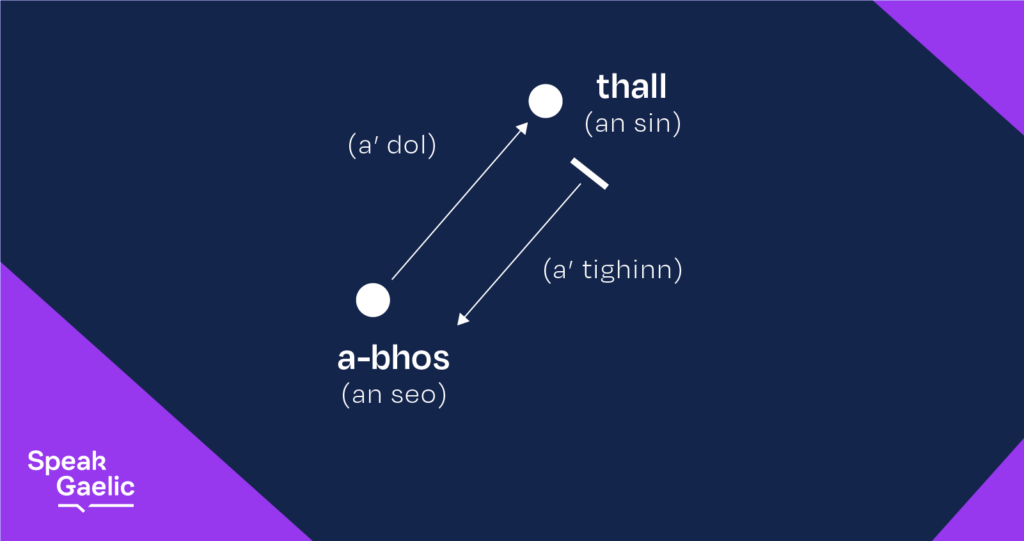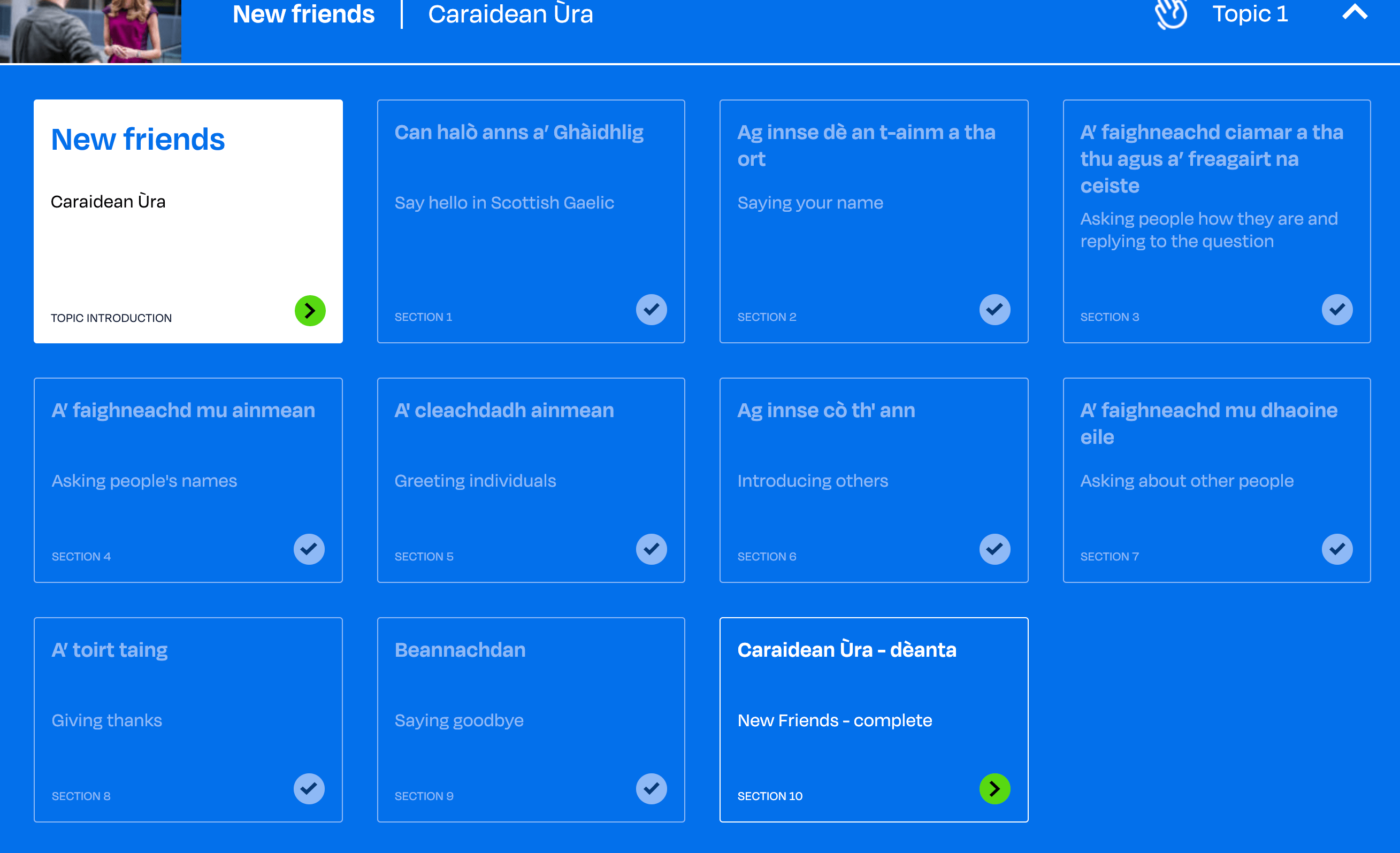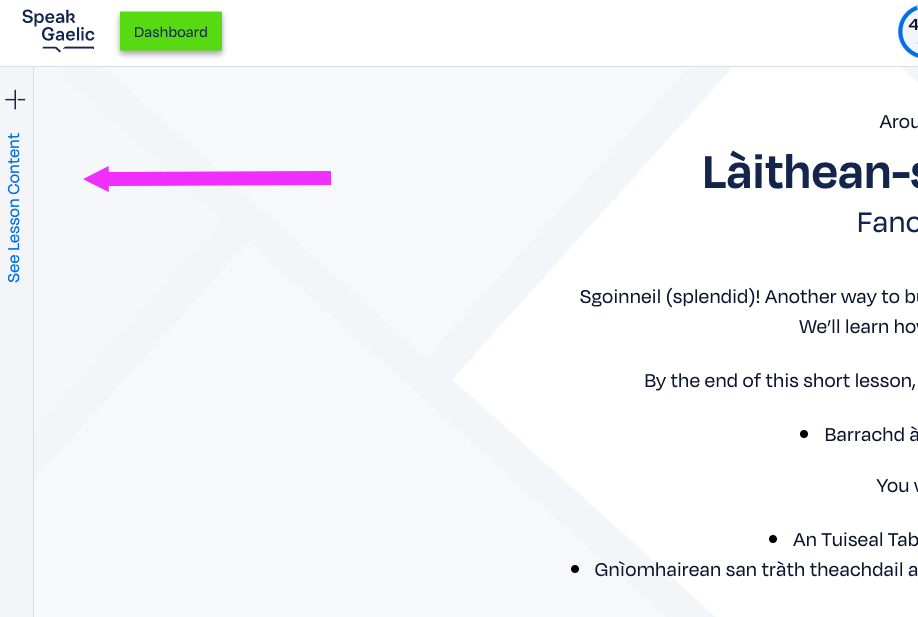A–null 's a–nall
Back and forth
We saw first in A2 Cuspair 2 that there is a word in Gaelic to be in a place: thall thairis (abroad), for example, and to be travelling to a place: a’ dol a–null thairis (going abroad). We also saw the words for being shuas (up) no shìos (down), and for moving suas (upwards) or sìos (downwards). Let’s look at them again.

| shuas | adv | up | (position) |
| suas | adv | up | (moving away from speaker) |
| a–nuas | adv | down | (from up toward speaker) |
| shìos | adv | down | (position) |
| sìos | adv | down | (moving away from speaker) |
| a–nìos | adv | up | (from down toward speaker) |

| thall | adv | over there | (position far from speaker) |
| a–null | adv | over | (moving away from speaker) |
| a–bhos | adv | over here | (position near speaker) |
| a–nall | adv | over | (moving toward speaker) |
Cuin a chaidh thu a–null thairis mu dheireadh?
When did you last go abroad?
An robh thu a–riamh shuas aig mullach Tùr Eiffel?
Were you ever up at the top of the Eiffel Tower?
Cuin a bha thu shìos ann an Sasainn mu dheireadh?
When were you last down in England?
An robh thu thall thairis am–bliadhna?
Were you/have you been abroad this year?
Cuin a thàinig thu air ais a–nall?
When did you come back over?
Here are some more examples.
Tha trì eich air taobh thall na h–aibhne.
There are three horses on the far side of the river.
Tha tunnagan shìos air an abhainn.
The ducks are down on the river.
Tha eòin shuas anns na speuran.
The birds are up in the sky.
Tha tè air rothair air taobh thall na h–aibhne.
There is a woman on a bicycle on the far side of the river.
Tha triùir ag iasgach a–bhos air an taobh seo den abhainn.
There are three (people) fishing over here on this side of the river.
Tha caoraich a–bhos air an taobh seo den abhainn.
The sheep are over here on this side of the river.
Tha craobhan mòra ri taobh na h–aibhne.
The big trees are beside the river.
Tha taighean snoga ri taobh na h–aibhne.
The nice houses are beside the river.
Chun na h–aibhne
If we are a’ dol a dh’àiteigin (going (to) somewhere) we’ll remember that we can use two words: gu (to, up to) or a (to, into). Remember that à (with grave accent) means from.
Remember the a (to, into) we use in phrases like a’ dol a Ghlaschu ‘going to Glasgow’ is really a form of do.
When used with a vowel we need to add dh’ before the vowel. If we want to use a like this with a definite noun it becomes either dhan or don (to the).
Chaidh sinn uile a Dhùn Èideann.
We all went to Edinburgh.
An tèid sinn a dh’Èirinn?
Will we go to Ireland?
Carson nach tèid thu don/dhan Ghearmailt?
Why don’t you go to Germany?
The other preposition we can use for going ‘to’ a place is gu. This doesn’t cause lenition, for example a’ dol gu taigh blàth, gu àite blàth (going to a warm house, a warm place). If we want to use gu with a definite noun it becomes chuna’/an/na (to the). This causes the definite noun to be in the genitive (possessive) case.
Thàinig iad gu taigh beag. (m)
They came to a small house.
Thàinig iad chun an taighe bhig. (m)
They came to the small house.
Thèid sinn gu abhainn mhòr. (f)
We will go to a big river.
Thèid sinn chun na h–aibhne mòire. (f)
We will go to the big river.




